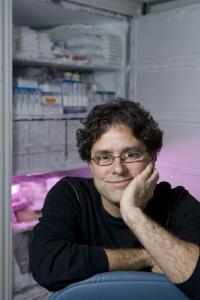A dangerous situation presents itself when bacteria evolve defenses against antibiotics. Experience has shown us that it can be a discouraging catastrophe for public health when a new drug-resistant strain, or a gene that confers resistance, shows up in a new place, as happened when the NDM-1 gene (which is resistant to up to 14 drugs) showed up in New Delhi drinking water. Scientists are searching for a way to defeat that debilitating resistance, however, and every so often there's encouraging news: On February 4, North Carolina State University chemistry researchers published a study in which they said that they’ve found a molecule that makes antibiotics 16 times more effective against recently identified antibiotic-resistant “superbugs.”
Tags: Northeast, North Carolina, North Carolina State University, Front Line event, chemistry researchers, public health, BRPF, NC State
In two recent articles published on business websites, Duke University emerges as being especially strong in both industry research funding (as it matches public funding) and its position within a growing biotech hub (the Research Triangle formed by Durham, Raleigh, and Chapel Hill, North Carolina). What these studies indicate is that Duke is succeeding as a research university in ways that its rivals may not be able to match and that bode well for its growth in the future. Both articles suggest that one of Duke's strengths is its relationship to industry in the region, for developing its technology as well as bringing in new funding for its research.
Tags: Duke University, North Carolina, biotech industry, industry news, Southern Region
Duke University Medicine is in the midst of a building boom that will transform the medical campus and bring together world-class care, research, and education like never before. The $235M Cancer Center is scheduled to open on February 27, 2012. The Duke Cancer Institute (DCI) is one of only 40 centers in the country designated by the National Cancer Institute as a “comprehensive cancer center,” combining cutting-edge research with compassionate care. The other buildings currently under construction are the Duke Medicine Pavilion (mid-2013) and the Learning Center (late 2012) which collectively represent an $880M investment in the Duke Medicine campus.
Tags: Biomedical expansion, Duke University, North Carolina, cancer research, Southeast
Much in the way a service or police dog may be the advance guard for its human partner in situations where there are unknown safety factors, stem cell therapies performed on companion animals may pave the way for human treatments. To accomplish that translational goal, North Carolina State University has entered into a collaborative research and clinical endeavor with Wake Forest Baptist Medical Center to accelerate the development of new therapies with promising benefits for people as well as the animals on which they are initially used.
Tags: North Caroline State University, North Carolina, Stem cell research, Translational Research, Southeast, animal science
 The Center for Human Genome Variation (CHGV) at Duke University School of Medicine has just received a $25M grant to lead a 5-year, international study to identify the genetic basis of human epilepsy. The grant was awarded as part of a genetics of epilepsy "Center without Walls" initiative funded by the National Institute of Neurological Diseases and Stroke (NINDS) to a team of leaders in epilepsy and human genetics from around the world. Heading that team is Dr. David Goldstein, who is a professor of Molecular Genetics & Microbiology, professor of Biology, and director of the CHGV at Duke.
The Center for Human Genome Variation (CHGV) at Duke University School of Medicine has just received a $25M grant to lead a 5-year, international study to identify the genetic basis of human epilepsy. The grant was awarded as part of a genetics of epilepsy "Center without Walls" initiative funded by the National Institute of Neurological Diseases and Stroke (NINDS) to a team of leaders in epilepsy and human genetics from around the world. Heading that team is Dr. David Goldstein, who is a professor of Molecular Genetics & Microbiology, professor of Biology, and director of the CHGV at Duke.
Tags: Epilepsy, Duke University, North Carolina, Southeast, Funding, Genomics
Wallace Coulter was not only a fantastically successful inventor of diagnostics equipment, but through the philanthropic Coulter Foundation he continues to promote medical innovation at over 10 universities across the US. Duke University has just received a $10 million commitment to permanently endow its Coulter Translational Partnership in biomedical engineering, which, combined with grants from the Fitzpatrick Foundation and other Duke resources brings the program's endowed resources to $20 million, securing its long term future.
Tags: Duke University, North Carolina, Translational Research, Research Funding, Durham, Southern Region
The Jane Goodall Institute was established in 1977 when young researcher Anne Pusey returned from Africa with boxes of Goodall's hard data: handwritten observations of chimp behavior from what would become the Gombe Preserve in Tanzania. Those boxes went with Pusey to the University of Minnesota, where the long process of curation and (eventual) digitation began. The Goodall Institute now has its headquarters in Arlington, Virginia, where it focuses on education, community development, and conservation, as well as research and management of its chimp sanctuary in the Congo.
Tags: Duke University, North Carolina, animal science, Durham, Southern Region

On February 22, 2011, Dean of the Duke University School of Medicine, Nancy Andrews, M.D., Ph.D., gave her State of the School Address. Part 4 of that speech was devoted to Duke's "Commitment to Research Infrastructure." The full text of that section of the speech is available in the transcription below, or on the original video.
(Photo courtesy of Duke University)
Tags: Duke University, North Carolina, Durham, industry news, Southern Region

